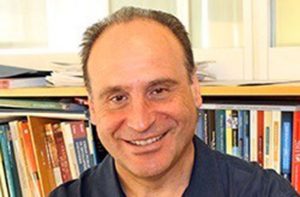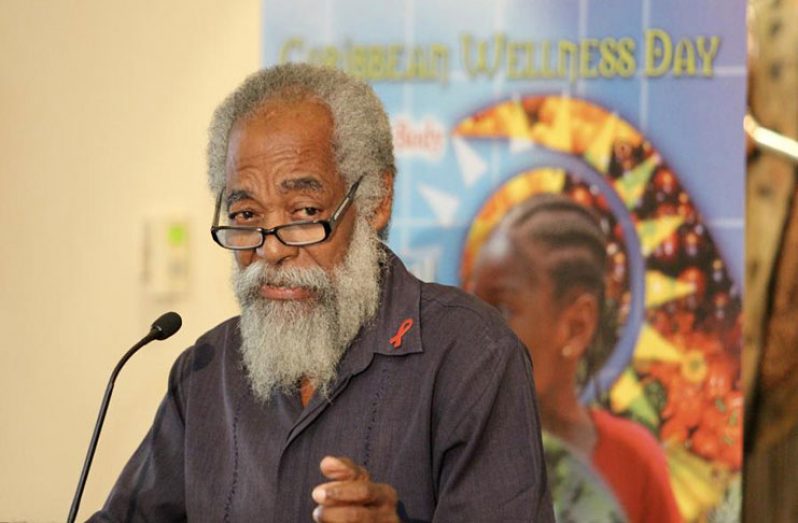— improve in areas of digitisation, food security, energy
THE coronavirus pandemic has taught the Caribbean that it should not return to its previous modus operandi post-COVID-19 but must act and improve on its vulnerabilities revealed in the areas of digitisation, food security, tourism, energy and more.
This is the opinion of several experts who appeared as guests on Guyana’s American Chamber of Commerce (AmCham) virtual programme on Tuesday to speak on the ‘Impact of the COVID-19 pandemic on the Caribbean Economy.’

These experts were Regional Economic Adviser for the Caribbean Country Department at the Inter-American Development Bank (IDB), David Rosenblatt; CEO of the Caribbean Climate-Smart Accelerator, Racquel Moses and UWI Director of Health Economics Unit (HEU), Professor Karl Theodore. The programme was moderated by M.Sc (Economics), Gopnauth Bobby Gossai Jr.
Moses said that Caribbean countries must understand that they no longer have the luxury of remaining where they are as the pandemic has pointed to several areas which must not be taken lightly.
She said that if the Region wastes good time by thinking that the global crisis was a one-off event, it will be left behind by the rest of the world which will adapt to meet other coming challenges.
One such example to which she pointed was the great need for digitisation in the Region, which she said — though the same had been advocated for over the years — gained greater momentum, unfortunately, only after the pandemic began.
Moses said that regional banks and other businesses which had not fully embraced digital transformation are now being forced to bring more, if not all of their services online, proving that it was possible all along.
“People need to look at how they innovate now. Don’t wait for the economy to reopen to go back to doing business as usual… many of these businesses were online within days. We need to think that even as we reopen these economies, it is incumbent upon each of us as to how we innovate our way individually, so that we empower governments to do the same thing,” she said.
Meanwhile, Professor Theodore agreed that the Caribbean will have to do things that they have never done before and the crisis has given the Region the opportunity to do the things it should have been doing all of the time.
He spoke to the area of food security, stating that the Region continues to make the same mistake by failing to be self-sustainable when it comes to food.
“This is a Region that has continued to increase its importation of food and that could never be something good. I think that is one of the main things we have to begin to look at. We have to start producing in the Region much more of the food that we consume,” he said.

He added: “Agriculture has the potential to get us out of where we are. Once we assure the population of their food supply, their capacity to do things in a number of areas seems to increase. Each of our countries has to give much more significant emphasis on agriculture.”
Gossai, too, pointed out that past world economic shocks have allowed for the development of unemployment insurance, the development of trade union engagement, roles for government to spend more to take care of the economy and new technologies for better business practices.
Though Professor Theodore acknowledged that countries will have to plan critically before they reopen their borders and ports, he does believe that it is possible to reopen in a way in which the potential risk can be managed. Two other areas he suggested that Caribbean countries address moving forward are inequality in access to health and foreign exchange rate regimes.
“An economy is what it is because of the consumption and the production that goes [sic] on so when you have a pandemic that is damaging both consumption and production you have a pandemic that is threatening the life of the economy itself,” he said, adding:
“Every country has to make an honest decision about its readiness to reopen because if we reopen before we should, we’re going to be caught in a disaster. There’s no question about that.”
Rosenblatt agrees with this as he noted that, presently, the world must return to its previous level of travel and productivity for the Caribbean to survive.
“Moving forward, for small economies there’s no route other than a global route. Globalisation is absolutely necessary,” he said.
From his observation in the area of tourism alone and Caribbean economies which are highly dependent on tourism, he said that now some of the last places on earth persons want to be is on an airplane or cruise ship.
He recommended that when temporary tax relief or targeted transfers are being considered by government, they should target people and businesses who need it most and not “deep-pocket businesses.”
Meanwhile, Moses said that climate change in the Region is also being impacted as COVID-19 has exposed the vulnerability of a lack of income diversity and resilience in economies.
She said the already indebted Region will have to borrow to get out of the present situation, but should not borrow simply to return to the way things were to improve in the areas of tourism, climate change and work ardently towards achieving energy independence.
“For the first time we’re all in this together; not just the Region but globally,” she said, adding: “[But] we have just as much of a chance as everyone else to look at the opportunities in this moment and to seize them and to look at how we innovate and we reorganise ourselves.”




.jpg)









